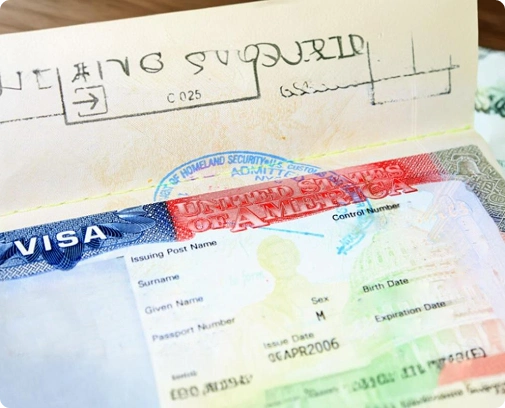J1
Join U.S. Cultural & Educational Programs
About the J1 visa
Benefits of the J-1 Visa
- Provides the opportunity to study, teach, or receive training in the U.S. while learning about American culture.
- Allows for cultural exchange and educational development.
- For some categories, such as the J-1 research scholar or professor, the visa can be extended for several years.

Key Features of the J-1 Visa
The primary purpose of the J-1 visa is to allow individuals to engage in exchange programs that foster cultural and educational exchange. Participants typically come to the U.S. to study, research, teach, or receive training.
To qualify for a J-1 visa, applicants must be sponsored by a designated exchange program. This program is typically authorized by the U.S. Department of State. pplicants must demonstrate that they have the necessary skills and qualifications for the exchange program, and they must show that they will return to their home country after the program ends.
The length of stay on a J-1 visa depends on the specific exchange program. The duration can range from a few months to several years.
Some J-1 visa holders may be subject to the two-year home-country physical presence requirement, meaning they must return to their home country for at least two years after completing their program before they can apply for certain U.S. visas or permanent residency.
J-1 visa holders can work only in the context of their exchange program. For example, a J-1 intern can work at a company related to their field of study, or a J-1 teacher can work in a U.S. school.
They are not allowed to work outside of the specific program unless they receive authorization from the U.S. government.
J-1 visa holders can bring their dependents (spouse and children under 21) to the U.S. on a J-2 visa. J-2 visa holders are allowed to work in the U.S. if they obtain permission from the U.S. Citizenship and Immigration Services (USCIS).
J-1 visa holders can travel freely within the U.S., but if they leave the country during their program, they will need a valid J-1 visa to re-enter the U.S.
If the program ends, J-1 holders must depart the U.S. within 30 days.
Categories of the J-1 Visa:
Student
For students enrolled in full-time academic or language programs.
Professor & Research Scholar
For individuals coming to the U.S. to teach or conduct research at accredited U.S. institutions.
Teacher
For foreign nationals who come to the U.S. to teach in primary or secondary schools.
Trainee/Intern
For individuals coming to the U.S. to receive training in a particular field, or to participate in an internship program.
Au Pair
For individuals coming to the U.S. to live with an American family and help with childcare, while attending school.
Physician
For foreign medical graduates coming to the U.S. for clinical training or observation.
Short-Term Scholar
For individuals coming to the U.S. for a short period to engage in research, lectures, or consultations.
Challenges of the J-1 Visa
Some J-1 visa holders are subject to the two-year home-country physical presence requirement, which means they must return to their home country for at least two years before applying for another U.S. visa or permanent residency.
The visa’s duration is tied to the specific exchange program, so it may not be as flexible as other visa categories.
Schedule and Attend Visa Interview: Schedule a visa interview at the U.S. embassy or consulate in your home country. Bring your DS-2019 form, DS-160 confirmation, passport, and other required documents (such as financial proof and a passport photo).
To Know More Visit: https://in.usembassy.gov/
